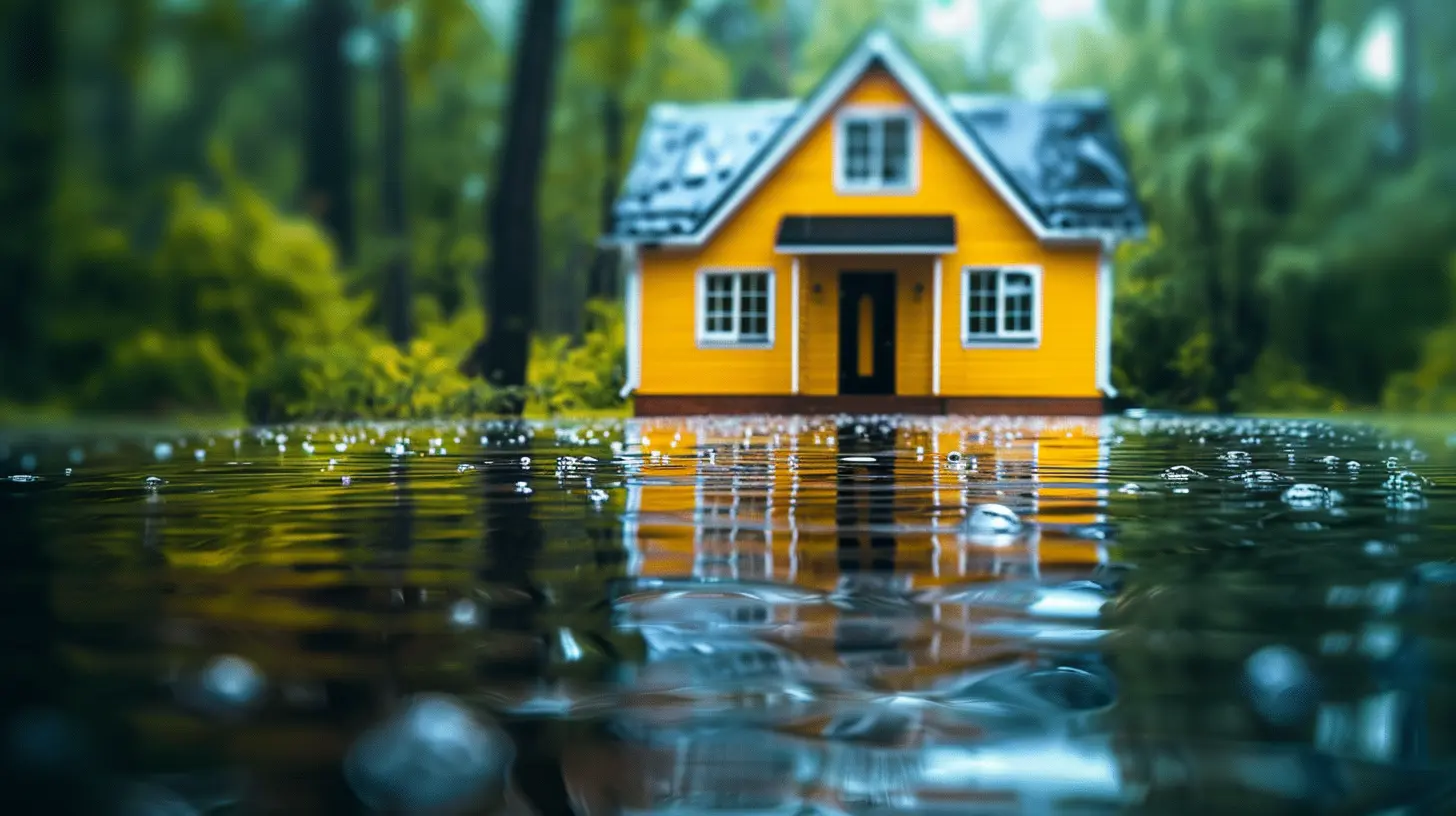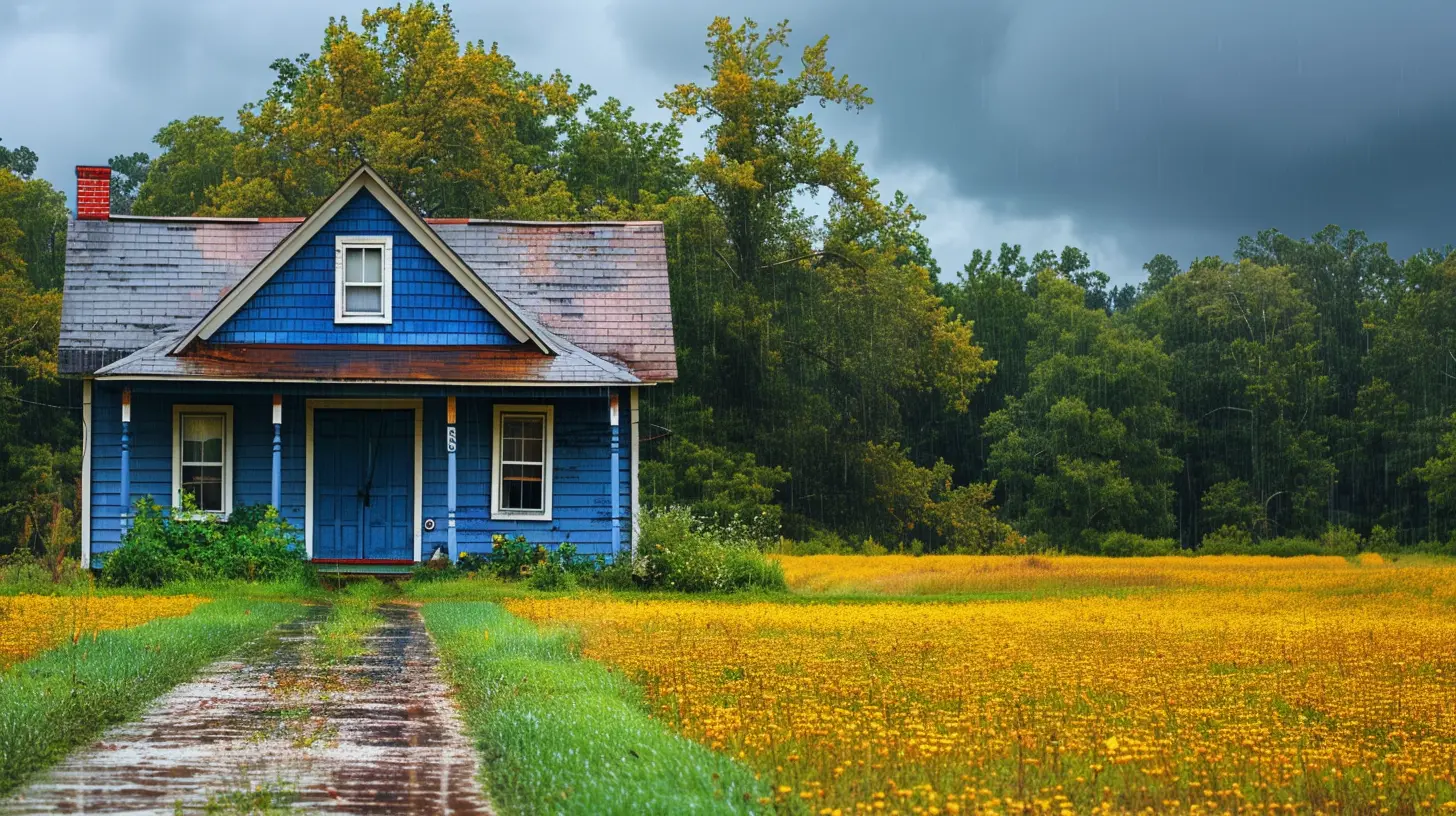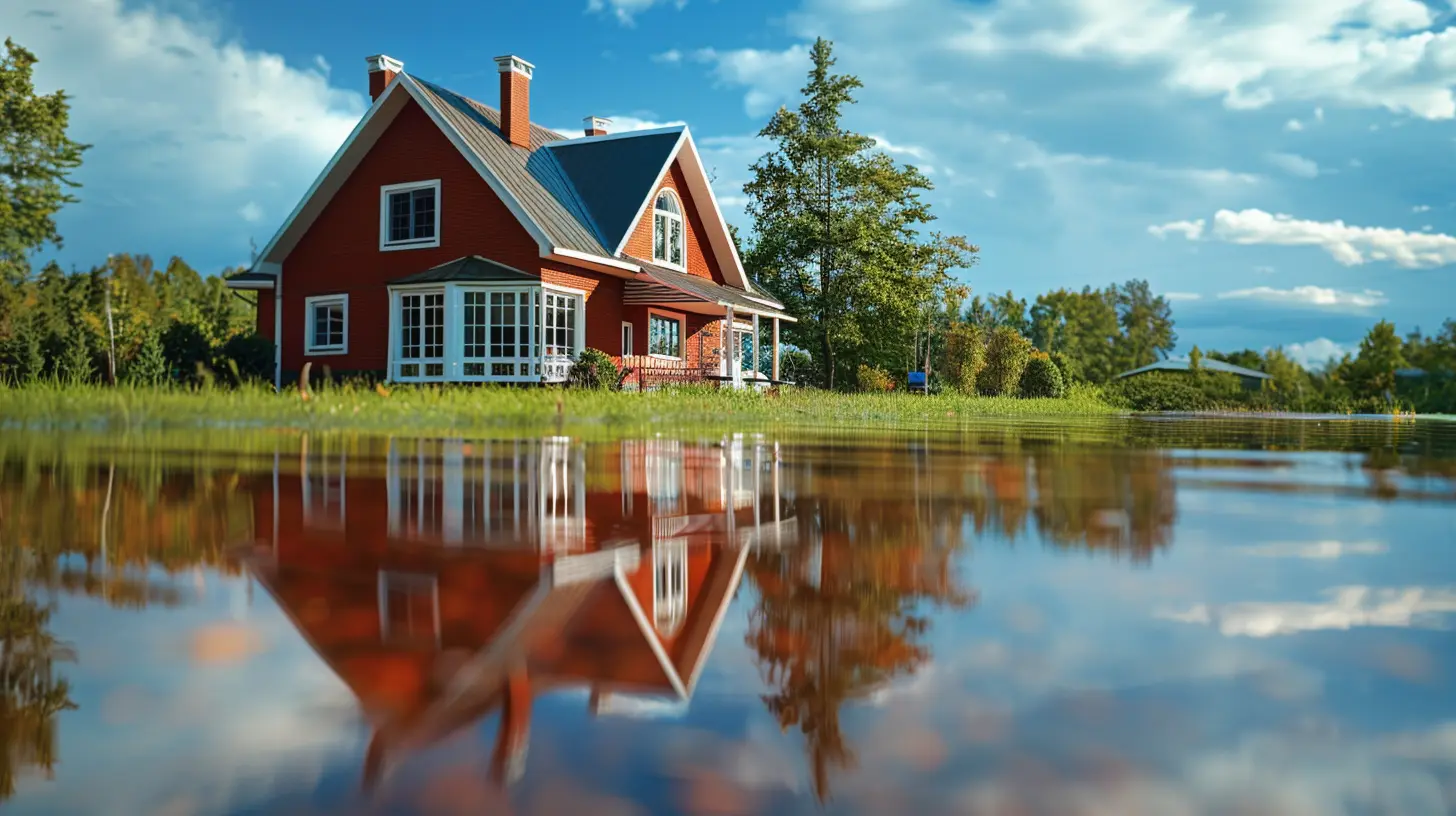Weather and Climate Considerations When House Hunting
8 June 2025
House hunting is already a wild rollercoaster ride—exciting, nerve-wracking, and at times, downright overwhelming. But one major factor that often gets overlooked? The weather and climate of the area.
Sure, you’ve got your dream kitchen in mind, a backyard big enough for summer BBQs, and maybe even a cozy fireplace for the colder months. But have you stopped to think about whether the local climate aligns with your lifestyle and long-term plans?
Let’s break it down and see why weather and climate should be non-negotiables when scouting for your dream home. 
1. Climate vs. Weather – What’s the Difference?
Before we get into the nitty-gritty, let’s clear up a common mix-up. Weather and climate aren’t the same things.- Weather refers to short-term atmospheric conditions—think daily rain forecasts, sudden heat waves, or unexpected snowfall.
- Climate is the long-term pattern of weather in a particular area. It dictates whether a place has mild winters, scorching summers, or frequent thunderstorms.
When buying a home, you need to consider both because they each affect your daily comfort, property maintenance, and even your wallet. 
2. The Impact of Climate on Your Home
Every climate type comes with its own challenges—and perks! Here’s what you should consider based on where you're looking to settle.Hot & Humid Climates 🌞🔥
Dreaming of sunny, tropical vibes? Cities like Miami, Houston, or New Orleans offer warmth all year round. But be warned—humidity can be a real nuisance.- Higher cooling costs: A/C bills can skyrocket in places where temps stay high.
- Mold & pest issues: Humid environments are a breeding ground for mold, mildew, and uninvited critters like termites.
- Hurricane risk: If you’re near the coast, be prepared for potential storms and flooding concerns.
Pro tip: Look for homes with well-insulated windows, energy-efficient cooling systems, and moisture-resistant materials.
Cold & Snowy Climates ❄️🏔️
If you’re drawn to places like Minnesota, Vermont, or Colorado, brace yourself for chilly winters and heavy snowfall.- High heating costs: You’ll spend a good chunk of cash on heating, so energy efficiency matters.
- Roof & foundation concerns: Repeated freeze-thaw cycles can cause cracks in foundations and roof damage.
- Snow removal duties: Driveways, sidewalks, and even rooftops need regular clearing.
Pro tip: Look for homes with quality insulation, a solid heating system, and a garage (trust me, scraping ice off your windshield every morning gets old fast).
Dry & Arid Climates 🌵☀️
Places like Arizona or Nevada offer minimal rainfall and desert-like conditions. While that means no shoveling snow, it also comes with its own set of concerns.- Water scarcity: Droughts can lead to water restrictions, affecting gardening or lawn maintenance.
- Wildfire risks: Dry regions are prone to wildfires, making fire-resistant materials essential.
- Extreme temperature shifts: Hot days but surprisingly chilly nights can be standard.
Pro tip: Opt for xeriscaping (a fancy word for drought-resistant landscaping) and check if the home has a good ventilation system.
Coastal Climates 🌊🏝️
Coastal living sounds dreamy—ocean breezes, beachfront views, and stunning sunrises. But there are some crucial factors to consider.- Saltwater damage: Proximity to the ocean can lead to corrosion of metal fixtures, cars, and even house exteriors.
- Flooding concerns: Rising sea levels and storms can pose flooding risks.
- Insurance costs: Homes in flood-prone areas often come with high insurance premiums.
Pro tip: Invest in storm-resistant windows and check for flood zone classifications before signing anything. 
3. How Seasonal Changes Affect Home Living
Some places have consistent weather year-round, while others see extreme seasonal shifts. Knowing what to expect seasonally helps you prepare, both financially and emotionally.Winter Woes
- Freezing pipes can be a headache (and costly to fix).- Snow loads on roofs can cause structural damage.
- Shorter days mean increased electricity usage.
Summer Struggles
- Heatwaves can be brutal without proper cooling.- Increased pest activity (yes, that includes mosquitoes).
- Higher water usage for lawns and gardens.
Spring & Fall Surprises
- Heavy rains can lead to flooding or water damage.- Sudden temperature changes can affect home materials.
- Increased pollen levels might not be great for allergy sufferers.

4. Natural Disasters: The Unwelcome Guests
No one wants to think about disasters when house hunting, but ignoring them can lead to major regrets. Some key threats to consider:- Hurricanes & Tornadoes: Common in coastal and midwestern states. Reinforced structures and storm shelters can be lifesavers.
- Earthquakes: If you're in California, seismic safety should be a top priority.
- Wildfires: Check local fire history, especially in dry, wooded areas.
- Flooding: Look at flood zone maps and consider insurance costs.
Pro tip: Research historical weather trends and ask about the property’s past disaster history before buying.
5. How Weather Affects Your Daily Life
It’s not just about how the climate affects your home, but how it shapes your everyday lifestyle.- Love outdoor activities? Harsh winters or frequent storms could limit your plans.
- Work remotely? Extreme weather might lead to power outages, affecting your productivity.
- Have kids or pets? You’ll want a climate that allows them to play outside comfortably.
Think about your daily routine and how the local weather might impact it.
6. What to Check Before Making a Decision
Before signing on the dotted line, research these key factors:✔️ Average temperatures year-round
✔️ Rainfall and snowfall data
✔️ Humidity levels
✔️ Air quality reports
✔️ Natural disaster risks
✔️ Energy efficiency of the home
Use climate data tools, talk to locals, and visit during different seasons if possible.
7. Final Thoughts – Finding a Home That Matches Your Climate Needs
At the end of the day, the perfect home isn’t just about square footage or modern finishes—it’s about how comfortable and sustainable it is for the long haul.Choosing the right climate for your home can save you money, stress, and unexpected maintenance surprises. So before you fall in love with a house, make sure you’re also in love with the weather that comes with it.
Because, let’s be real—no one wants to buy their dream home only to find out the summers are unbearable or the winters make getting to work a nightmare.
Happy house hunting!
all images in this post were generated using AI tools
Category:
House HuntingAuthor:

Vincent Clayton
Discussion
rate this article
3 comments
Trinity Mendoza
Great insights! Understanding weather impacts truly helps in making informed homebuying decisions. Thank you for sharing!
June 15, 2025 at 8:13 PM

Vincent Clayton
Thank you for your kind words! I'm glad you found the insights helpful for your homebuying journey.
William Watson
When house hunting, consider how local weather and climate affect long-term living. Check for flood zones, snow removal services, and energy efficiency of homes. Understanding seasonal patterns can influence property value and maintenance needs, ensuring your investment is both practical and sustainable in the long run.
June 12, 2025 at 4:05 AM

Vincent Clayton
Thank you for your insightful comment! Considering local weather and climate is crucial for making informed housing decisions. Your emphasis on flood zones, snow removal, and energy efficiency highlights key factors for long-term living and investment sustainability.
Seraphine Carter
Consider local climate trends and weather patterns to ensure long-term home satisfaction.
June 11, 2025 at 12:44 PM

Vincent Clayton
Absolutely! Understanding local climate trends is essential for ensuring your home meets your long-term needs and comfort.



